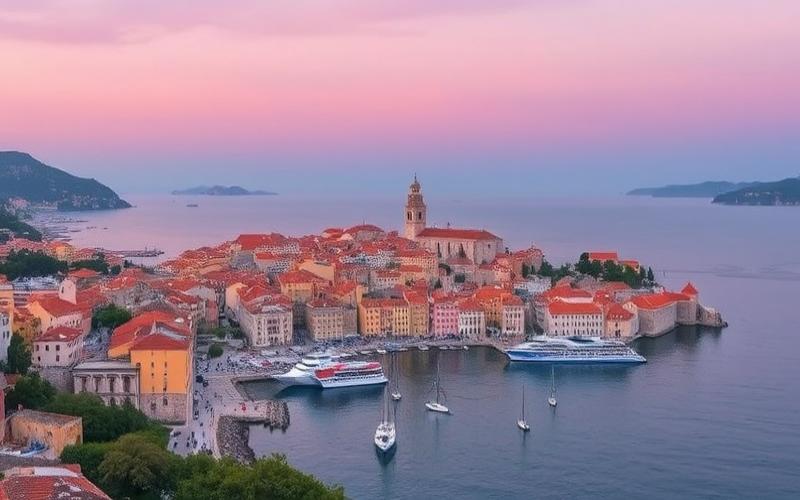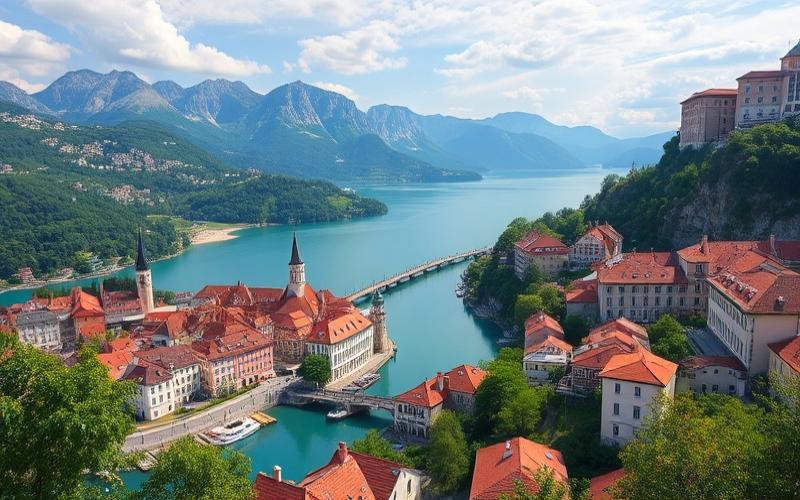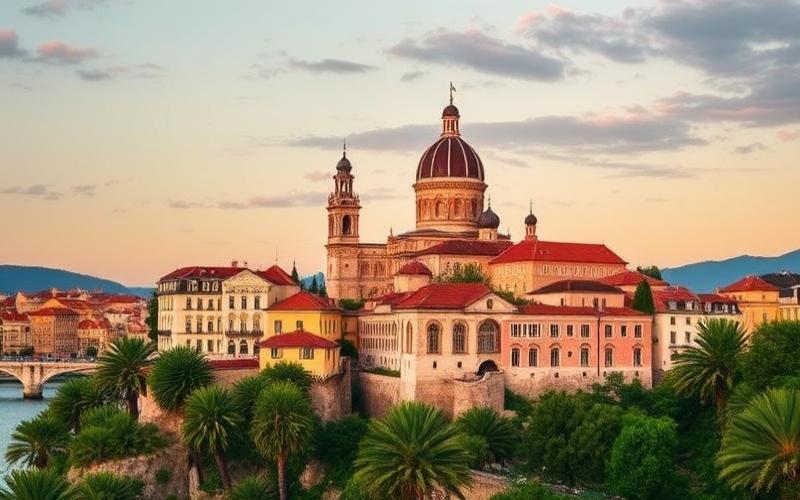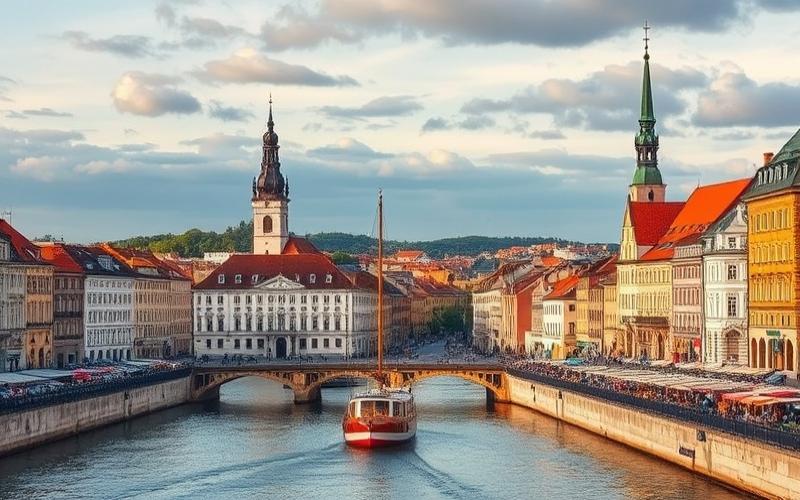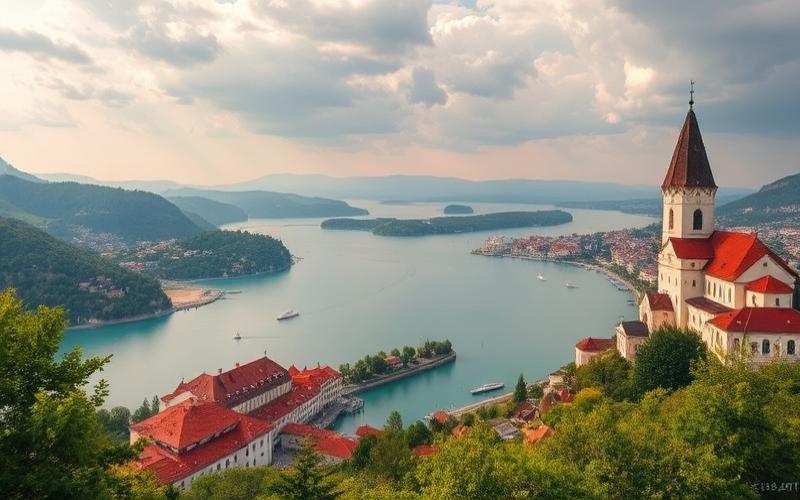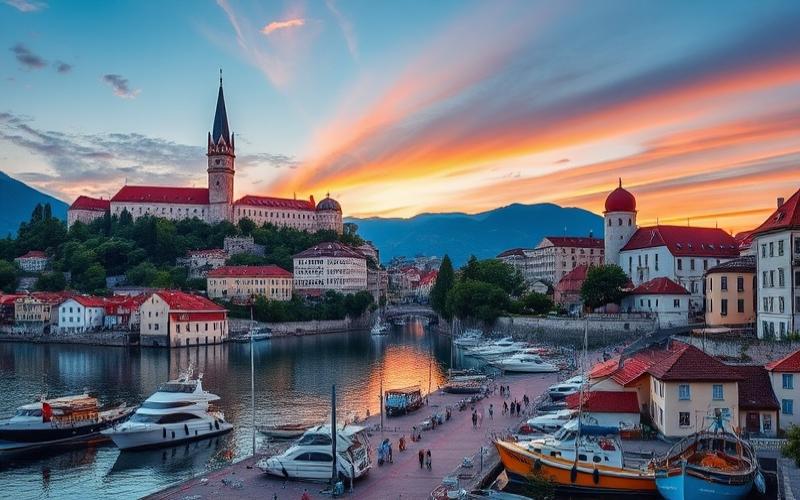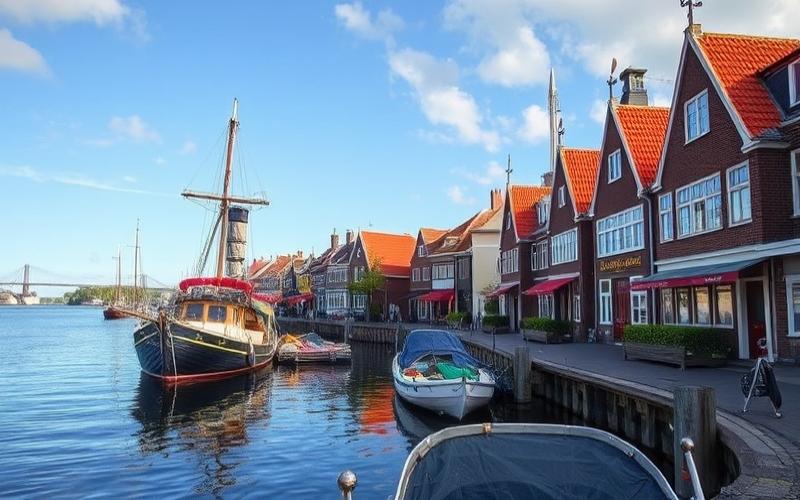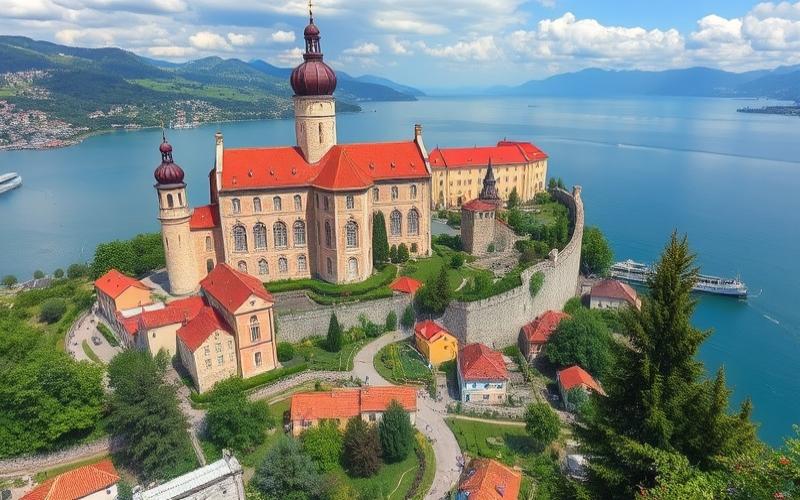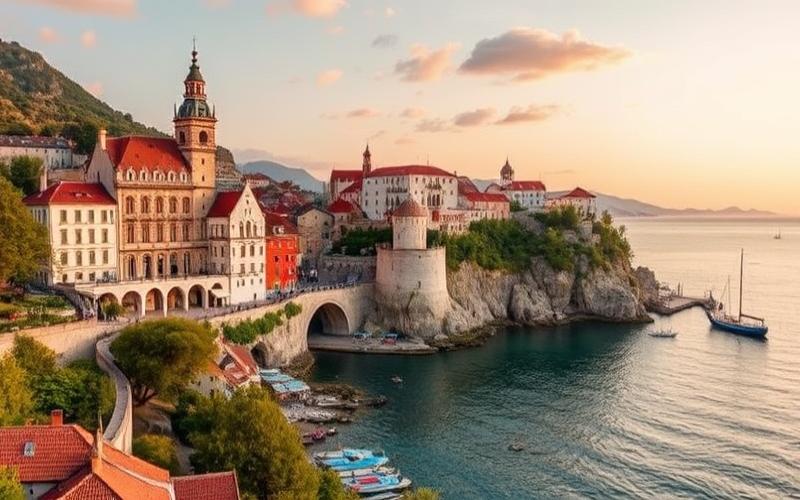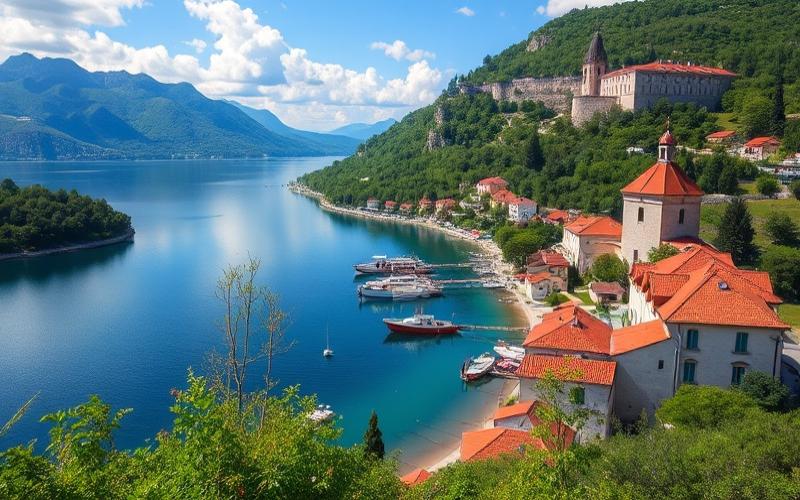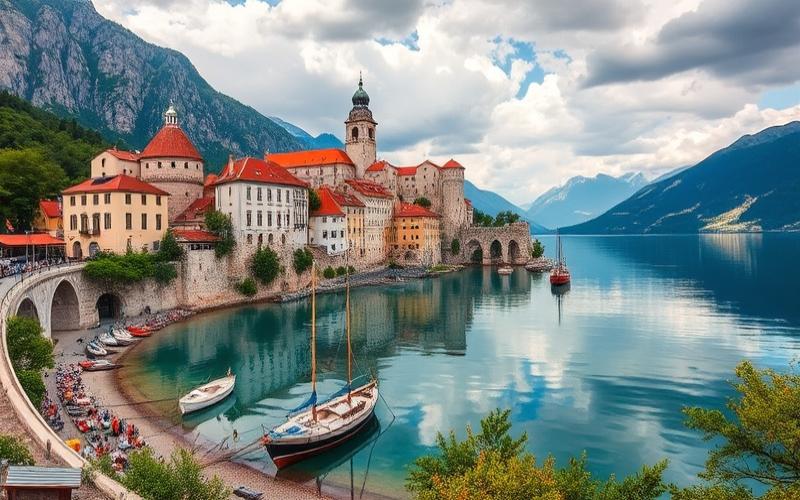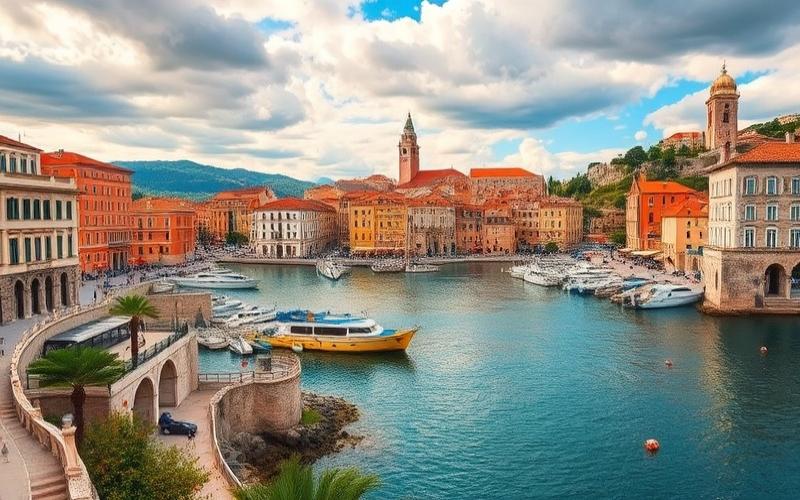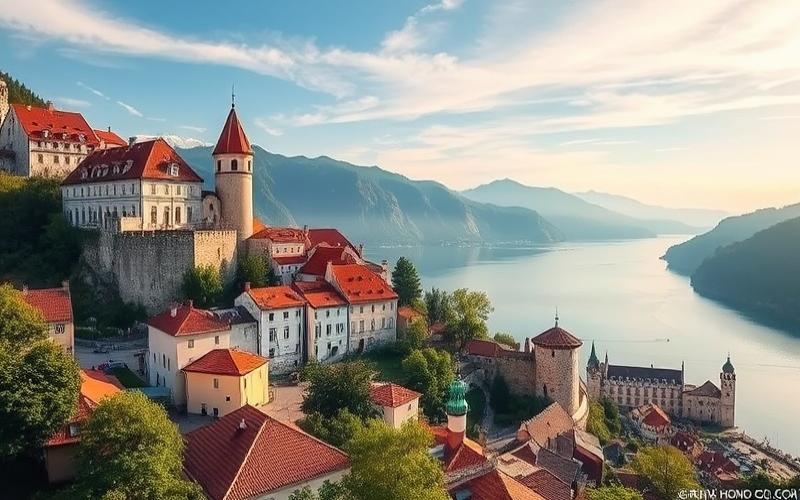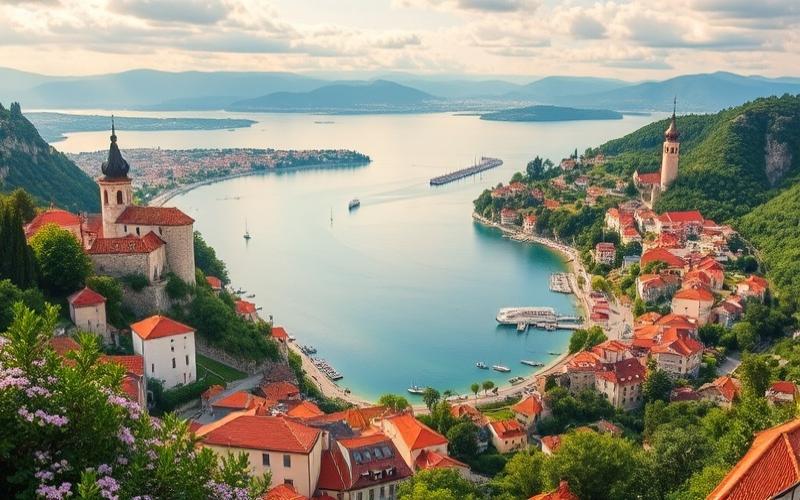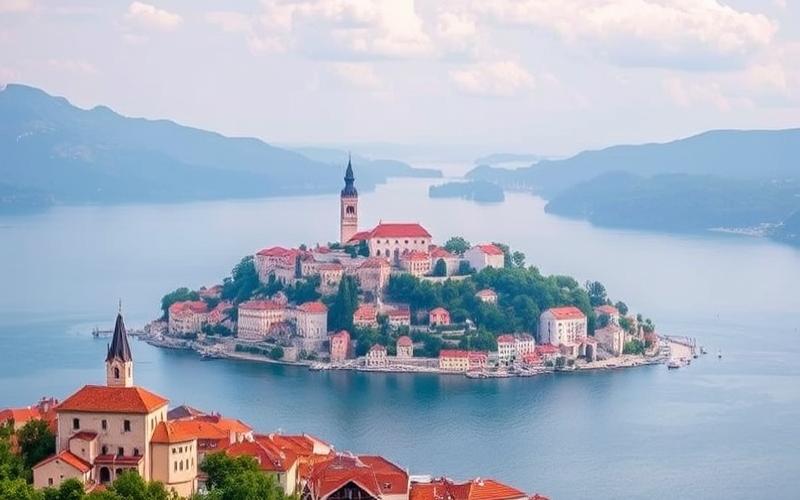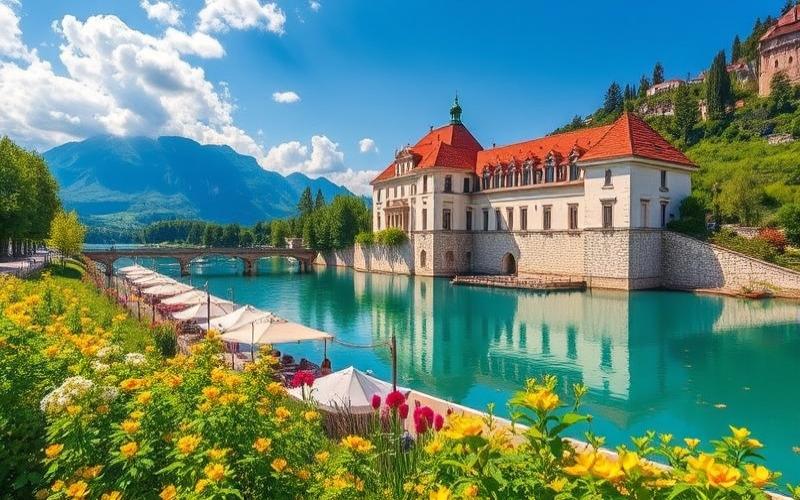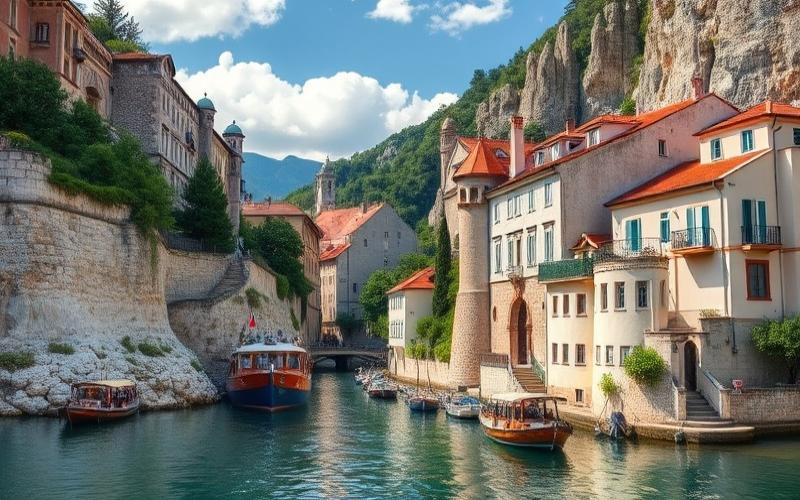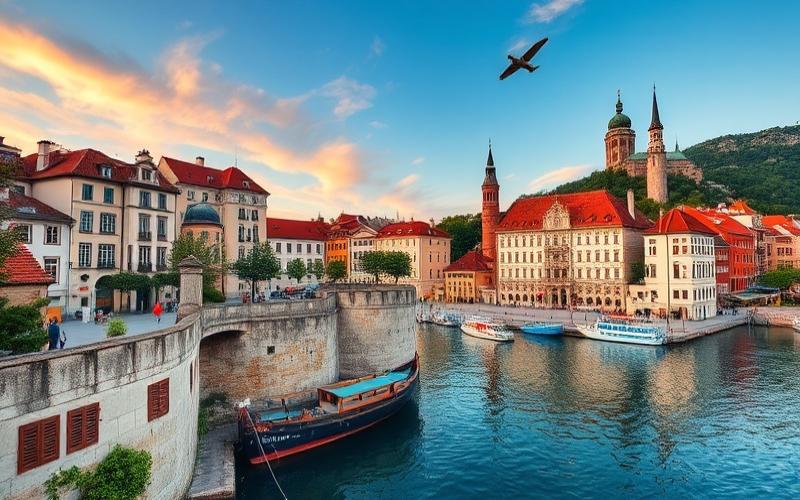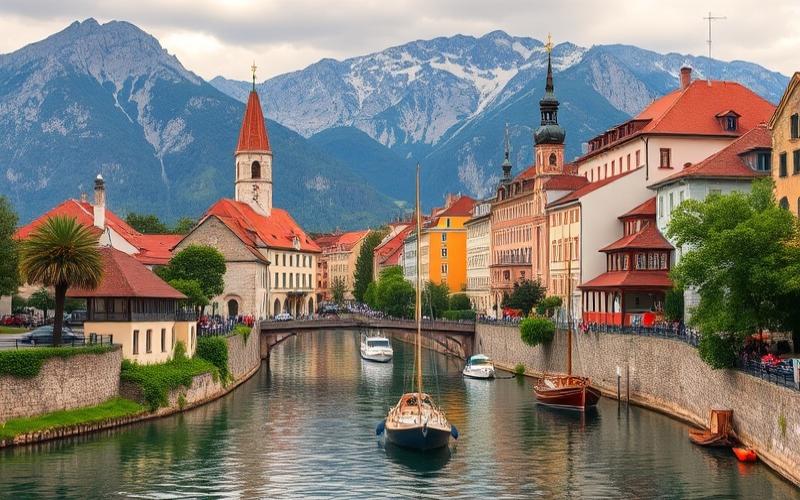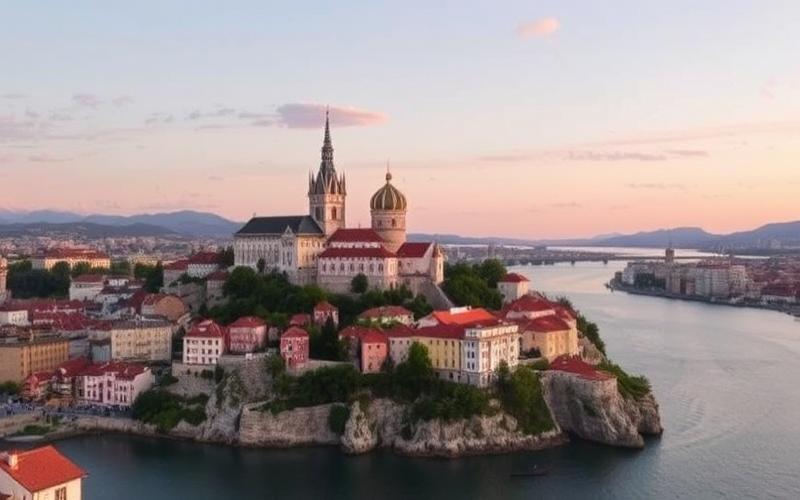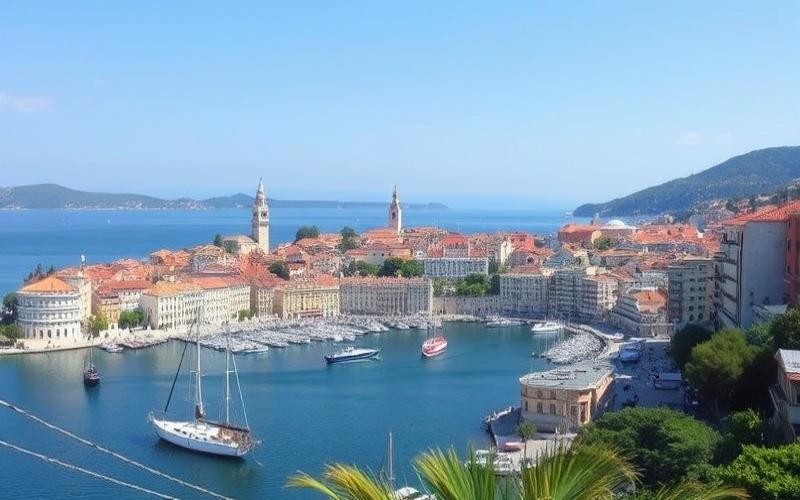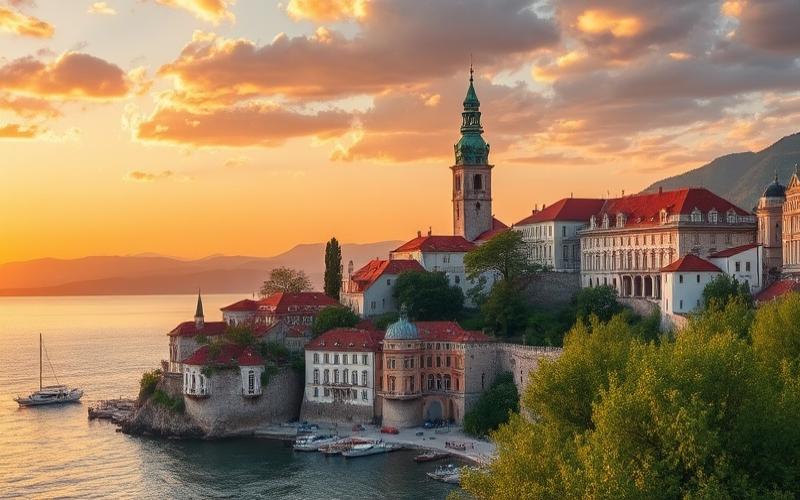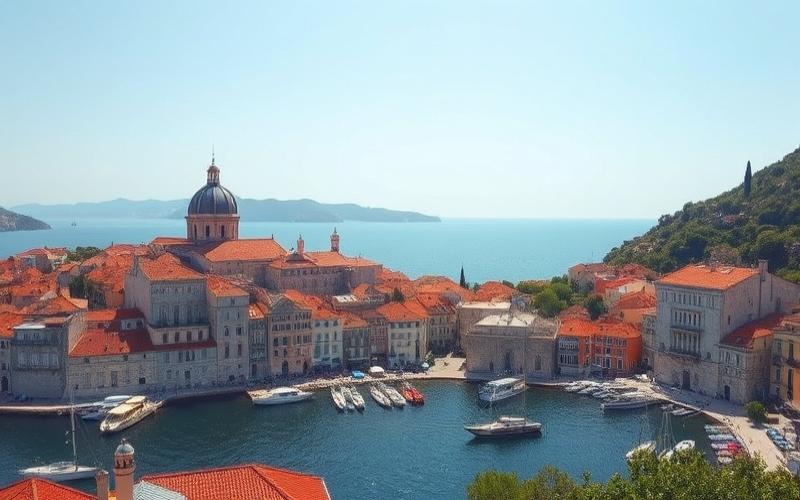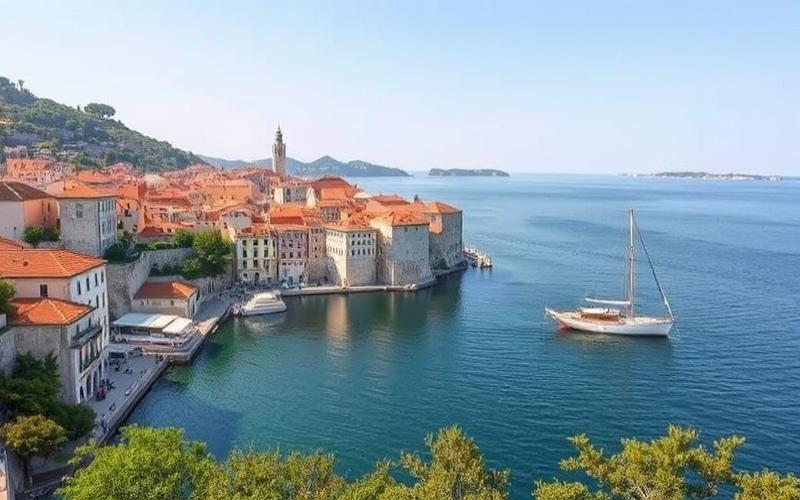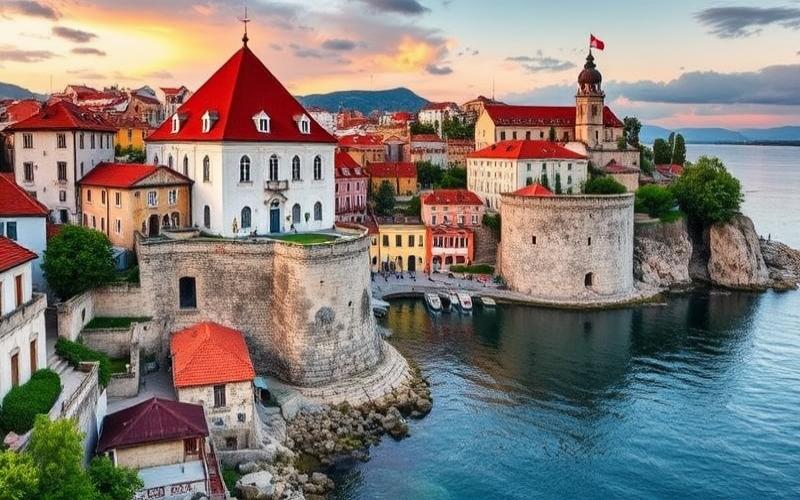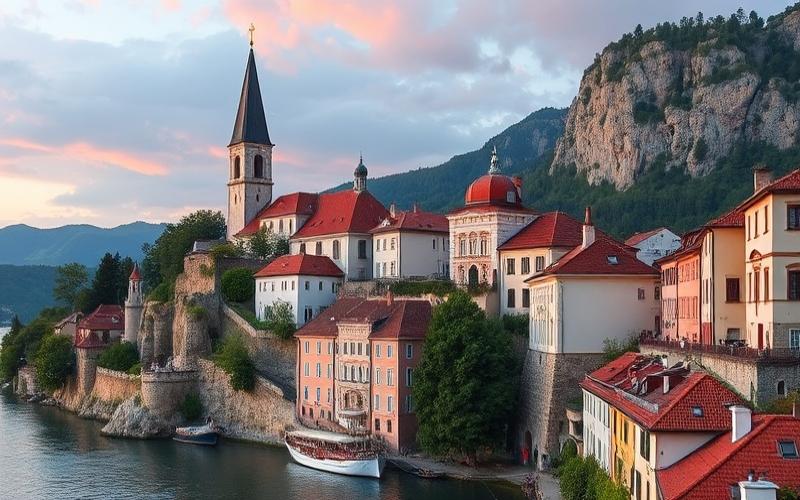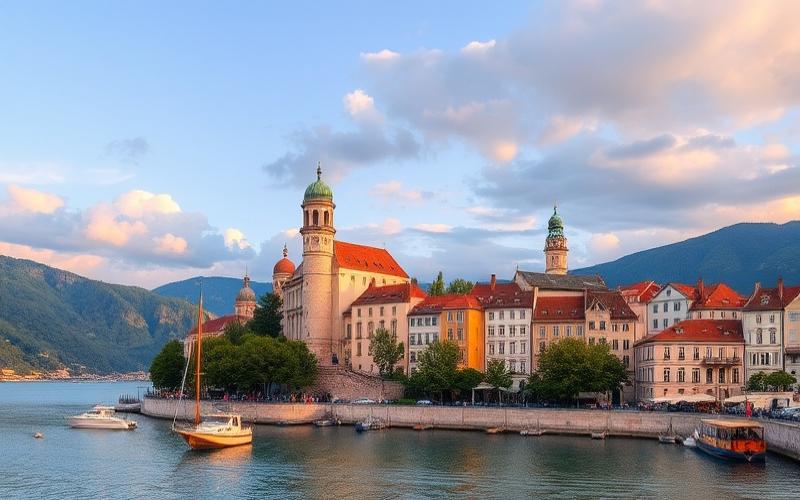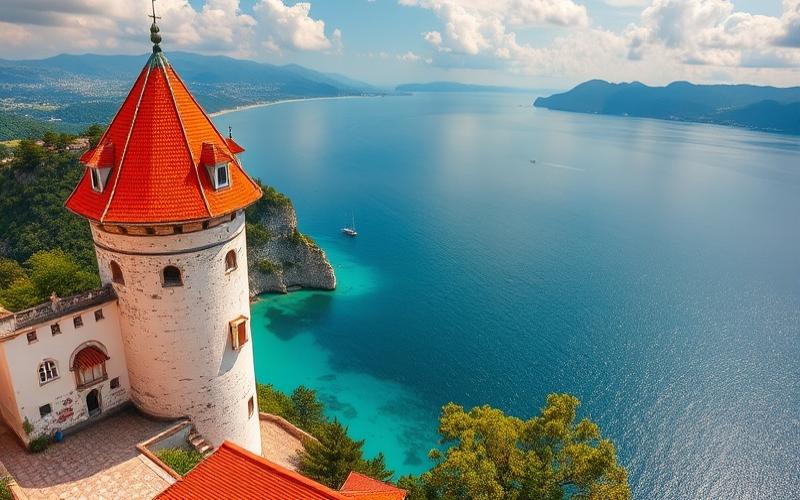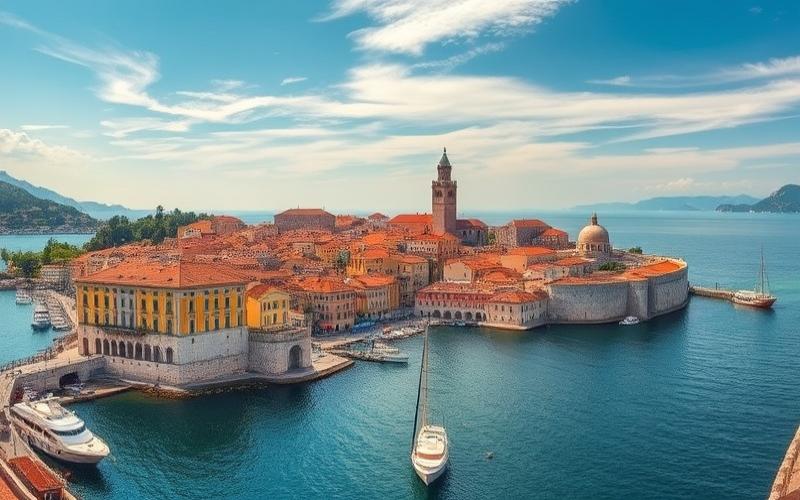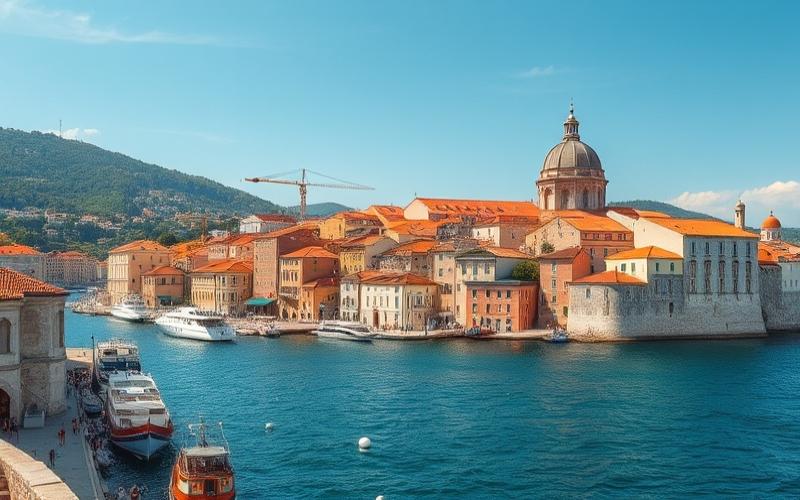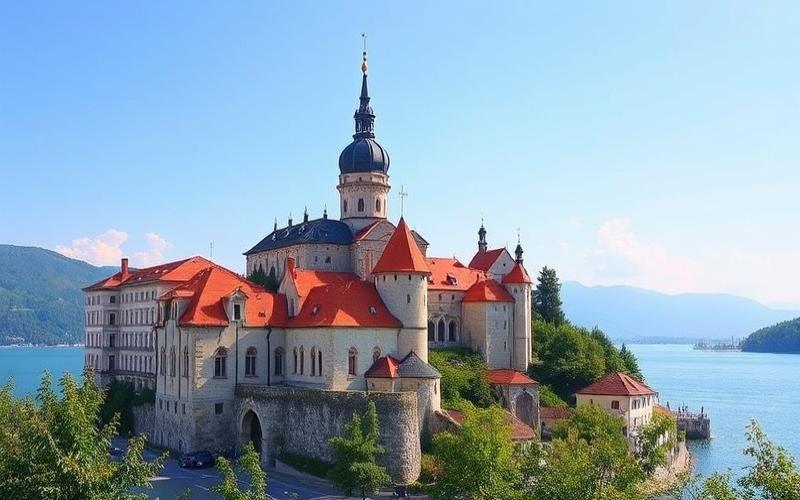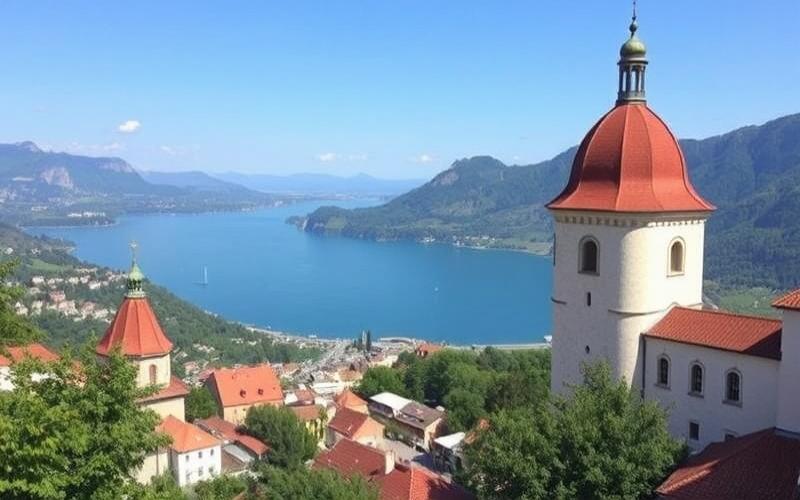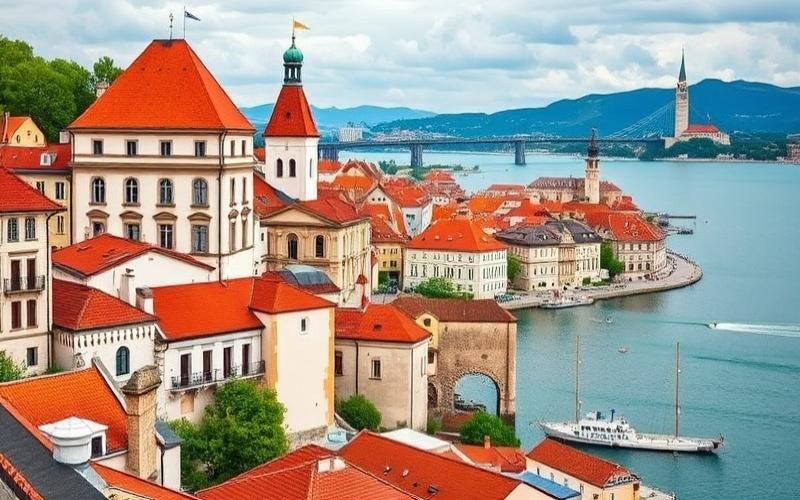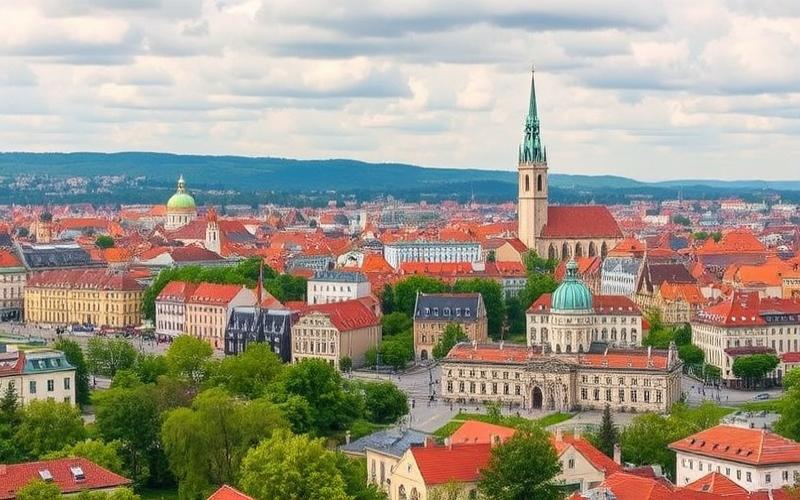
 Published on and written by Cyril Jarnias
Published on and written by Cyril Jarnias
Away from the picturesque Adriatic shores and popular tourist spots, a new real estate phenomenon is emerging in Croatia: dark stores. These hyper-urban warehouses, optimized for quick delivery, are multiplying in city centers, quietly transforming urban landscapes and consumer habits.
By attracting e-commerce giants, dark stores are reinventing urban space usage, presenting both opportunities and challenges for the future of Croatian city centers.
What are the economic and societal implications of this trend on the local real estate market?
Here’s a fascinating look into this rapidly expanding world.
Rise of Urban Warehouses for Quick Deliveries in Croatia
The rise of urban warehouses for quick deliveries in Croatia is driven by a combination of factors related to demand, real estate market conditions, and technological innovations.
List of Key Factors:
- Increased demand for ultra-fast delivery: Croatian consumers, particularly in major urban areas like Zagreb and Split, now expect increasingly shorter delivery times for their online purchases and food orders.
- Flexibility of the Croatian real estate market: The relatively affordable cost of certain vacant or underutilized commercial spaces facilitates the rapid establishment of urban warehouses (“dark stores”) in city centers.
- Innovative technologies:
- Robotic automation for quick order preparation and reduced wait times.
- Artificial intelligence to optimize storage and anticipate flows.
- Digital inventory management with real-time tracking through IoT.
- Use of electric vehicles, cargo bikes, or drones for last-mile delivery.
Comparative Table: Impact on Local Economy vs. Challenges
| Positive Points | Challenges Faced |
|---|---|
| Creation of local jobs | Scarcity and high cost of urban land |
| Revitalization of urban commerce | Potential conflicts with residents |
| Sustainable logistics optimization | Regulatory complexity |
| Reduced traffic/delivery delays | Heavy technological investments |
Concrete Examples in Croatia:
- Zagreb: Several “dark stores” have been developed in peripheral neighborhoods near the center (Novi Zagreb), benefiting from optimal road accessibility.
- Split & Rijeka: Areas around strategic ports are seeing the emergence of modern logistics warehouses, sometimes integrated into broader intermodal projects (notably Rijeka with its new digital terminal).
Future Perspectives:
- Accelerated development of automated warehouses expected due to widespread adoption of robotic and AI solutions enabling efficient operation even on reduced surfaces.
- Gradual transformation of certain traditional commercial spaces toward the hybrid “store-warehouse” model, optimized for both physical and digital sales.
List of Major Challenges for Investors/Operators:
- Quickly identify real estate opportunities suitable for logistics storage while respecting local regulatory framework
- Manage urban integration without generating nuisances (additional traffic, noise)
- Maintain high level of technological investment in face of growing international competition
The future is marked by continuous strengthening of the urban micro-logistics network favored by complete digitalization of the Croatian logistics chain.
Good to Know:
Urban warehouses for quick deliveries, or “dark stores,” are experiencing notable growth in Croatia due to increasing demand for ultra-fast delivery services, particularly in cities like Zagreb or Split. The Croatian real estate market, characterized by relatively affordable rents and high urban density, facilitates the establishment of these logistics spaces. New technologies play a central role in optimizing operations and enabling effective inventory management. This trend potentially impacts the local economy by generating new jobs and revitalizing certain urban areas, although investors face challenges such as infrastructure adaptation and managing relationships with local residents. In Dubrovnik, for example, several warehouse projects are underway, illustrating the dynamics of this sector that promises to transform the Croatian real estate landscape in the future.
Impact of Dark Stores on Logistics Real Estate in Croatia
The growing prominence of dark stores is profoundly transforming the logistics real estate sector in Croatia, mirroring trends observed in other Central and Eastern European countries.
Growing Demand and Strategic Location:
- Dark stores, urban mini-warehouses dedicated to preparing online orders, are generating increased demand for logistics spaces located in the heart of urban areas.
- These spaces are often installed in ground-floor units, vacant former stores, underground parking lots, or commercial premises on secondary routes, thus optimizing proximity to customers to reduce delivery times.
- Preference goes to strategic locations in dense neighborhoods, close to consumption centers and easily accessible for delivery personnel.
| Sought Criteria | Description |
|---|---|
| Urban proximity | Establishment in central and dense neighborhoods |
| Accessibility | Easy access for delivery vehicles and couriers |
| Surface area | Spaces more compact than traditional warehouses |
| Adaptability | Possibility of converting former stores or parking lots |
Effects on Prices and Logistics Real Estate Market:
- This new demand leads to increased rents in strategic urban areas and appreciation of well-located logistics properties.
- Vacancy rates decrease for premises adaptable to dark stores, while conversion of former physical stores to urban logistics becomes a dominant trend.
- Scarcity of suitable locations pushes prices upward and intensifies competition between logistics operators and e-commerce players.
Evolution of Investment and Management Criteria:
- Investors and property owners are adapting their criteria:
- Increased valuation of flexibility of premises (possibility to quickly transform commercial space into urban warehouse).
- Search for shorter and adjustable leases, allowing quick adjustment of supply to e-commerce market demand.
- Growing interest in secondary locations previously neglected but now sought for their logistics potential.
Implications for Regulation and Urban Economy:
The rise of dark stores poses new challenges for local authorities:
- Need to adapt urban planning regulations to frame the transformation of commercial spaces into urban warehouses.
- Emergence of questions about coexistence with residents (nuisances, delivery flows, traffic management).
Economically, the growing prominence of dark stores:
- Redraws the urban commercial fabric, accelerating the transformation of certain neighborhoods.
- Stimulates the valuation of real estate segments previously underutilized (former stores, parking lots, basements).
List of Potential Economic and Urban Impacts:
- Increase in value of urban logistics assets
- Accelerated transformation of traditional commercial neighborhoods
- Increased pressure on urban infrastructure (traffic, parking)
- Rapid adaptation of real estate investment strategies
- New regulatory requirements to frame premises usage
The rise of dark stores in Croatia fits into a global dynamic of urban logistics transformation, leading to revaluation of urban logistics spaces, evolution of investor expectations, and new challenges for urban regulation and the local economic fabric.
Good to Know:
In Croatia, dark stores are transforming logistics real estate by increasing demand for strategically located spaces near urban centers to optimize quick delivery. This trend has driven up prices of logistics properties, with investors and property owners adapting their criteria to favor warehouses capable of meeting the specific needs of these stores without public access. The rise of these dark stores could also lead to modifications in local urban planning regulations, potentially impacting economic growth and the dynamics of the Croatian real estate industry. Although the city of Zagreb appears to be at the heart of this evolution, other urban regions might soon follow, thus influencing the logistics landscape on a national scale.
E-commerce Investments and Their Influence on the Croatian Real Estate Market
The e-commerce sector in Croatia is experiencing rapid growth, with a market estimated at $1.05 billion USD in 2025 and an average annual growth rate (CAGR) exceeding 11% for several years.
Major Recent Investments and Key Players:
- Local companies like Sancta Domenica, Pevex, Ekupi, Fliba, Notino, Sensus Grupa (Chipoteka), Emmezeta and retail giant Bauhaus are among the main drivers of this expansion.
- International platforms such as Amazon EU S.à r.l., Alibaba Group (AliExpress), and marketplaces like Zalando or About You are intensifying their presence.
- Croatian company Bazzar recently expanded its operations to Bosnia-Herzegovina, after establishing itself in Serbia, illustrating regional dynamism.
Effects on Local Real Estate Market:
Increased Demand for Logistics Real Estate:
- The rise of e-commerce creates strong demand for modern warehouses and distribution centers in major urban areas such as Zagreb, Split and Rijeka.
- Accelerated development of “dark stores” – customer-free stores dedicated to quick order preparation – is changing the real estate typology sought by investors.
Concrete Examples of Real Estate Evolution:
| Asset Type | Recent Evolution | Preferred Location |
| Modern warehouses | Increase in acquisitions/renovations since 2022 | Zagreb periphery & highway corridors |
| Urban logistics centers | Conversion of former industrial zones into e-commerce hubs | Peripheral neighborhoods of major cities |
| Grocery dark stores | Multiplication since 2023 with rise of quick commerce grocery | City centers/Residential areas |
Consequences on Real Estate Prices and Urbanization:
- Growing demand for these logistics assets causes a notable increase in rents in the industrial/logistics sector (+8 to +15% depending on location).
- Prices per m² for premium warehouses have reached up to €900/m² in some strategic areas around Zagreb, compared to about €650/m² five years ago.
List of Observed Impacts on Urbanization:
- Accelerated requalification of obsolete industrial spaces into high-tech logistics hubs.
- Increased land pressure near major road corridors, sometimes generating unplanned urban displacement or densification.
- Visible transformation in some peripheral neighborhoods where the cumulative presence of warehouses/dark stores permanently alters the urban fabric.
Recent Illustrative Data:
- Between 2020 and 2024, over 60,000 m² additional space dedicated to storage/fulfillment was brought to market around Zagreb.
- There are now over a hundred automated “click & collect” points deployed mainly in Adriatic tourist regions but also in the heart of university cities where the young digital native population is concentrated.
The transformations driven by these investments therefore promote a profound reconfiguration of the Croatian real estate market: rapid rise of the modern industrial-logistics segment; generalized increase in rental/land values; notable evolution of the urban landscape where digital commerce and associated infrastructure are concentrated.
Good to Know:
E-commerce investments in Croatia, with key players such as Amazon and locally Tisak, are radically transforming the real estate market. Demand for distribution centers and “dark stores” in cities like Zagreb and Split has increased considerably, leading to rising commercial real estate prices in these areas. Additional warehouses and logistics infrastructure are needed, representing an opportunity for land investors. This dynamic encourages urbanization in urban peripheries, modifying local real estate development patterns. In 2022, online sales volume in Croatia climbed by 15%, highlighting the growing appeal of e-commerce and reinforcing its impact on the real estate sector.
Disclaimer: The information provided on this website is for informational purposes only and does not constitute financial, legal, or professional advice. We encourage you to consult qualified experts before making any investment, real estate, or expatriation decisions. Although we strive to maintain up-to-date and accurate information, we do not guarantee the completeness, accuracy, or timeliness of the proposed content. As investment and expatriation involve risks, we disclaim any liability for potential losses or damages arising from the use of this site. Your use of this site confirms your acceptance of these terms and your understanding of the associated risks.


